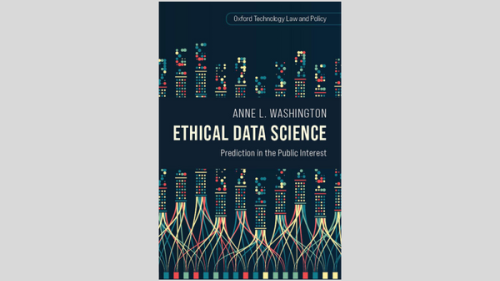Washington engages with policymakers and academics
Dr. Anne Washington had an active summer in Australia instilling her research on ethics and predictive data science into practice. She was invited by the University of Western Australia in Perth for a public lecture and a panel discussion to celebrate her forthcoming book, Ethical Data Science: Prediction in the Public Interest, which will be released in December 2023 by Oxford University Press. The abstract and more details about the book can be found below.
While in Australia, Dr. Washington and the other editors of the Oxford Technology Law and Policy series also convened the first invite-only international Tech Crimes Summit at the University of Western Australia in Perth. Along with twenty legal and policy experts from every continent, they considered how technology companies avoid global litigation. This work is connected with the #TackleLawlessness project.
On this trip, she also was the lead speaker at a round table for the Western Australian government and gave a talk to the Parliamentary Counsel office whose responsibility is to write laws on legislative transparency.

Ethical Data Science: Prediction in the Public Interest
By Anne L. Washington (2023)
Abstract
Predictive data science is often viewed as a public good, yet too often human needs are pitted against the financial interests of large digital infrastructures. Can data science truly serve the public interest? The question of our time is whether the promise of predictive science will exceed the inherent conflicts of interests presented by the organizations that fund it. As one of the first books on public interest technology, Ethical Data Science: Prediction in the Public Interest acknowledges the institutional incentives that drive computational prediction. It argues that data science prediction embeds administrative preferences that often ignore the disenfranchised. The book introduces the prediction supply chain to highlight moral questions alongside the interlocking legal and commercial interests dominating data science. Situating data-driven analysis within multiple layers of effort systematically exposes risky dependencies while also pinpointing opportunities for principled action, research ethics, and policy interventions. The book establishes the limits of predictive technology controlled by the few and urges for more inclusive data science.

